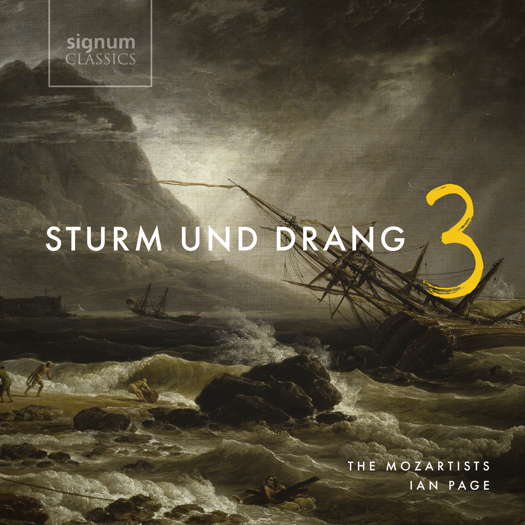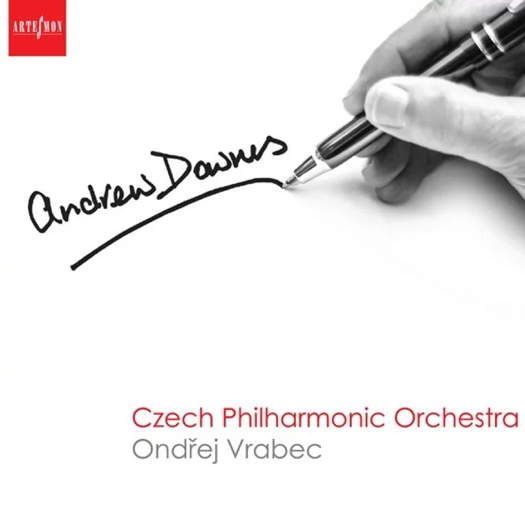 ASK ALICE: Weekly, from 2003 until 2016/17, Alice McVeigh took on the role of classical music's agony aunt to answer questions on a surprising variety of subjects.
ASK ALICE: Weekly, from 2003 until 2016/17, Alice McVeigh took on the role of classical music's agony aunt to answer questions on a surprising variety of subjects.

Groundbreaking Extremes
GERALD FENECH unreservedly recommends recordings of eighteenth century 'sturm und drang' music
'Ian Page and his Mozartists deliver performances of the highest artistic standards ...'
Sturm und Drang, usually translated as 'storm and stress', was a proto-Romantic movement in German literature and music that flourished between the late 1760s and early 1780s. Within the movement, individual subjectivity and, in particular, extremes of emotion were given free expression in reaction to the perceived constraints of nationalism imposed by the Enlightenment and associated aesthetic movements.
Significant figures associated with 'Sturm und Drang' were Wolfgang von Goethe and Friedrich Schiller. These were influential proponents of the movement early in their lives, but they soon ended their association with it by initiating what would become 'Weimar Classicism'. The Classical period music (1750-1800) associated with 'Sturm und Drang' is predominantly written in a minor key to convey difficult or depressing sentiments. The principal themes tend to be angular, with large leaps and unpredictable melodic contours. Tempos and dynamics change rapidly and unpredictably in order to reflect strong changes of emotion. Pulsing rhythms and syncopation are common as are racing lines in the soprano or alto registers. Writing for string instruments features 'tremolo' and sudden, dramatic, dynamic changes and accents.
Now to this exceptional disc from Signum Classics, which is the third volume in a cycle of seven focusing on some of the composers who wrote works during this 'Sturm und Drang' period. The programme, which includes a selection of works dating from between 1771 and 1788, culminates again with one of the great 'Sturm und Drang' symphonies by Franz Joseph Haydn (1732-1809) - this time arguably the greatest of them all, No 44 the 'Trauer' (Mournful).
Listen — Haydn: Allegro con brio (Trauer Symphony)
(SIGCD759 track 9, 0:21-1:14) ℗ 2023 The Mozartists :
For the first time in the series Wolfgang Amadeus Mozart (1756-1791) is also represented in the form of his extraordinarily visceral and darkly chromatic Adagio and Fugue in C minor.
Listen — Mozart: Fugue (Adagio and Fugue in C minor)
(SIGCD759 track 1, 2:49-3:46) ℗ 2023 The Mozartists :
The other orchestral work is an outstanding G minor Symphony by Czech composer Leopold Kozeluch (1747-1818), whose quality sweep and lyricism will surprise many newcomers to this composer.
Listen — Leopold Kozeluch: Adagio (Symphony in G minor)
(SIGCD759 track 5, 4:18-5:11) ℗ 2023 The Mozartists :
The two vocal pieces that conclude this programme are, indeed, genuine rarities. The aria 'Zwischer Angst und zwischen Hoffen' from Alceste by Anton Schweitzer (1735-1787) is full of dramatic intensity and searing passion. Alceste was one of the earliest attempts to create German tragic opera in the vernacular, and this aria displays all the musical ingenuity of its composer.
Listen — Anton Schweitzer: Zwischer Angst und zwischen Hoffen (Alceste)
(SIGCD759 track 3, 0:00-0:55) ℗ 2023 The Mozartists :
The scene from Annibale in Torino - the twenty-third of eighty-seven operas by Giovanni Paisiello (1740-1816) - features an exquisite but brief arioso before leading into a stormy G minor aria.
Listen — Giovanni Paisiello: Smarrita, tremante (Annibale in Torino)
(SIGCD759 track 8, 2:33-3:32) ℗ 2023 The Mozartists :
Ian Page and his Mozartists deliver performances of the highest artistic standards mixed with a profound knowledge of a musical period that overflowed with emotional fervour and groundbreaking extremes. The vocal pieces sung by American soprano Emily Pogorelc are despatched with scintillating virtuosity and sparkling elan. This is a disc that will give much pleasure to many in general, and especially to those interested in discovering more about this period of transition between the baroque and classical eras. I unreservedly recommend not only this issue, but the whole cycle.
Copyright © 8 October 2023
Gerald Fenech,
Gzira, Malta




